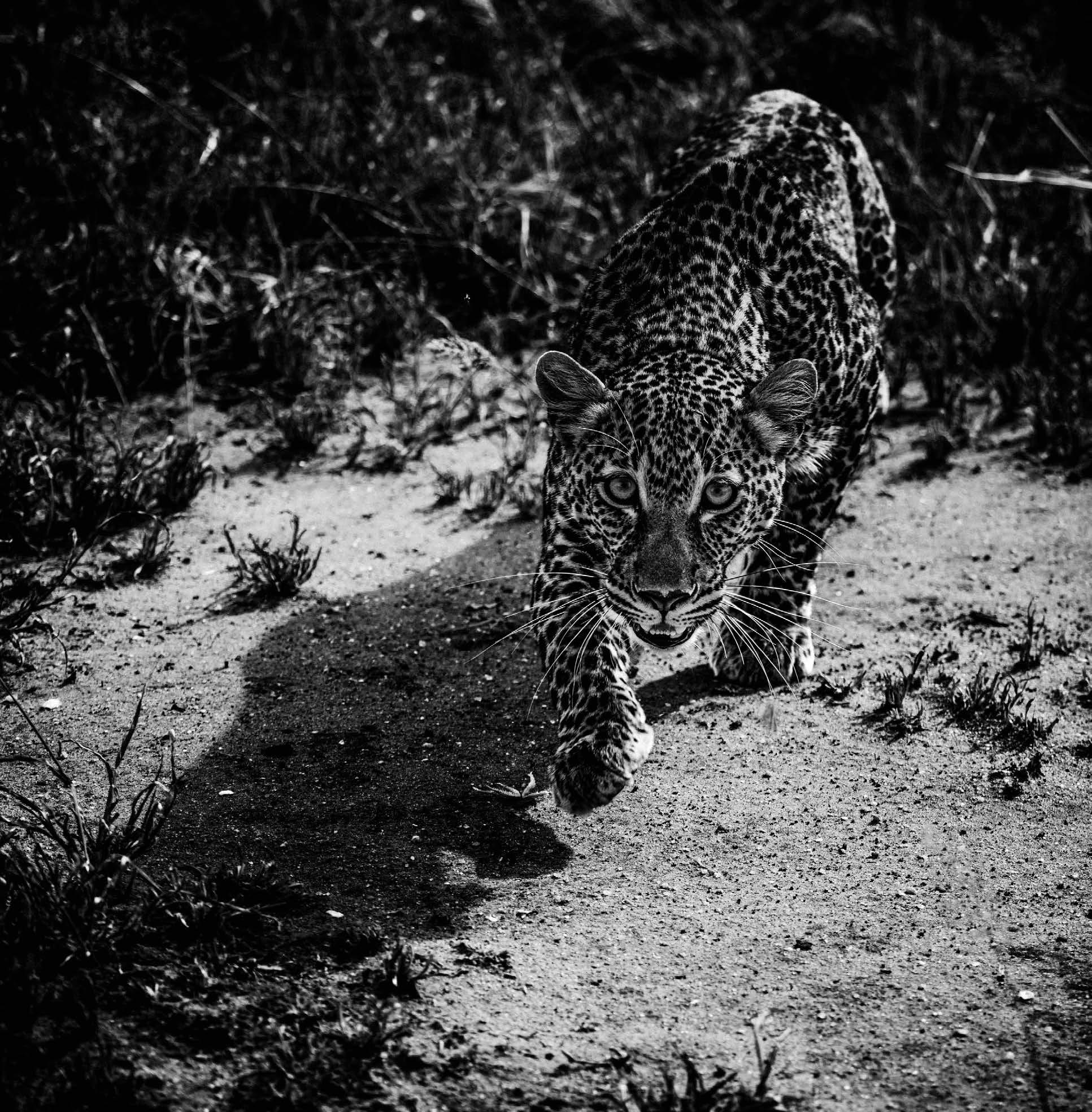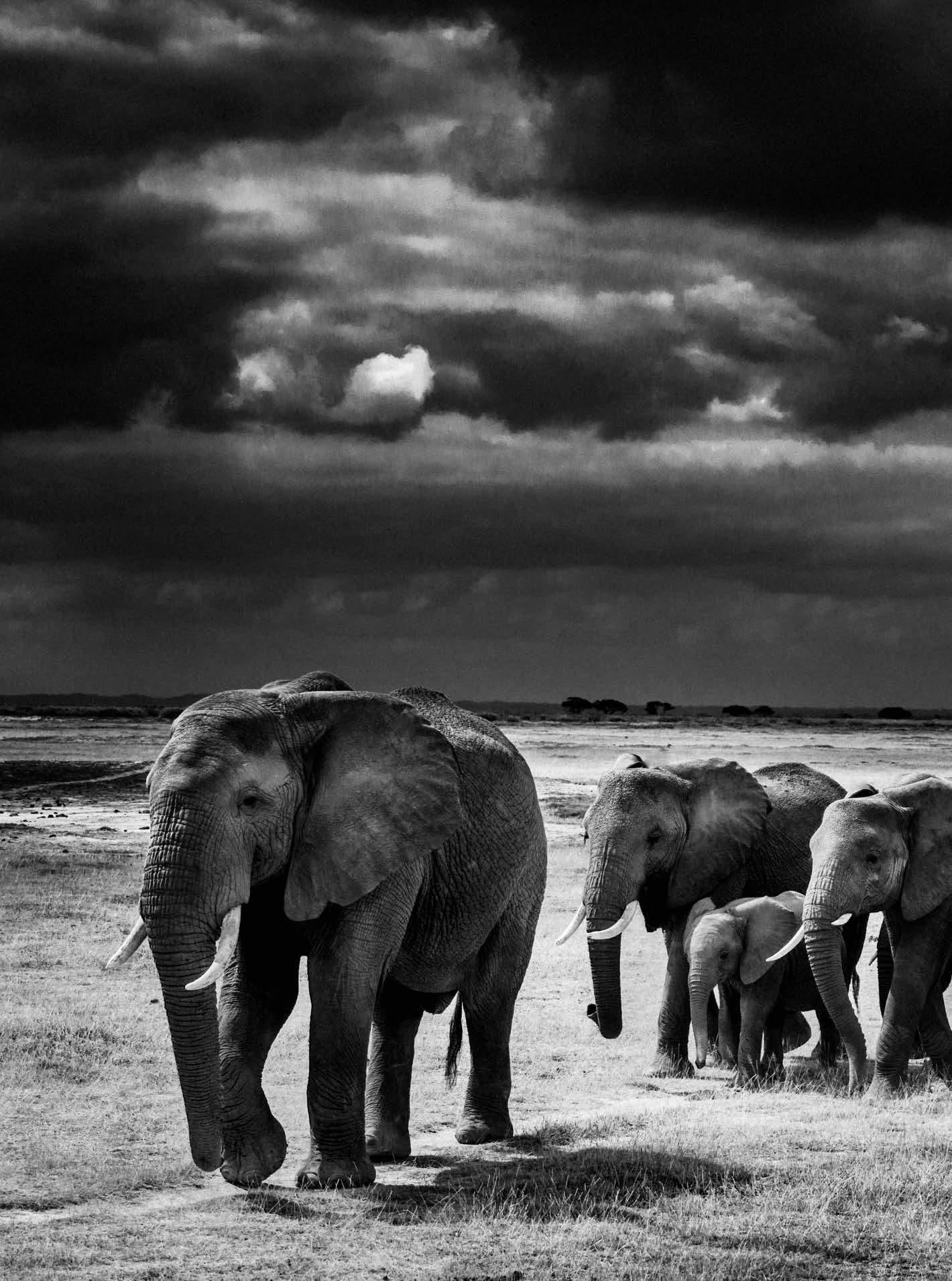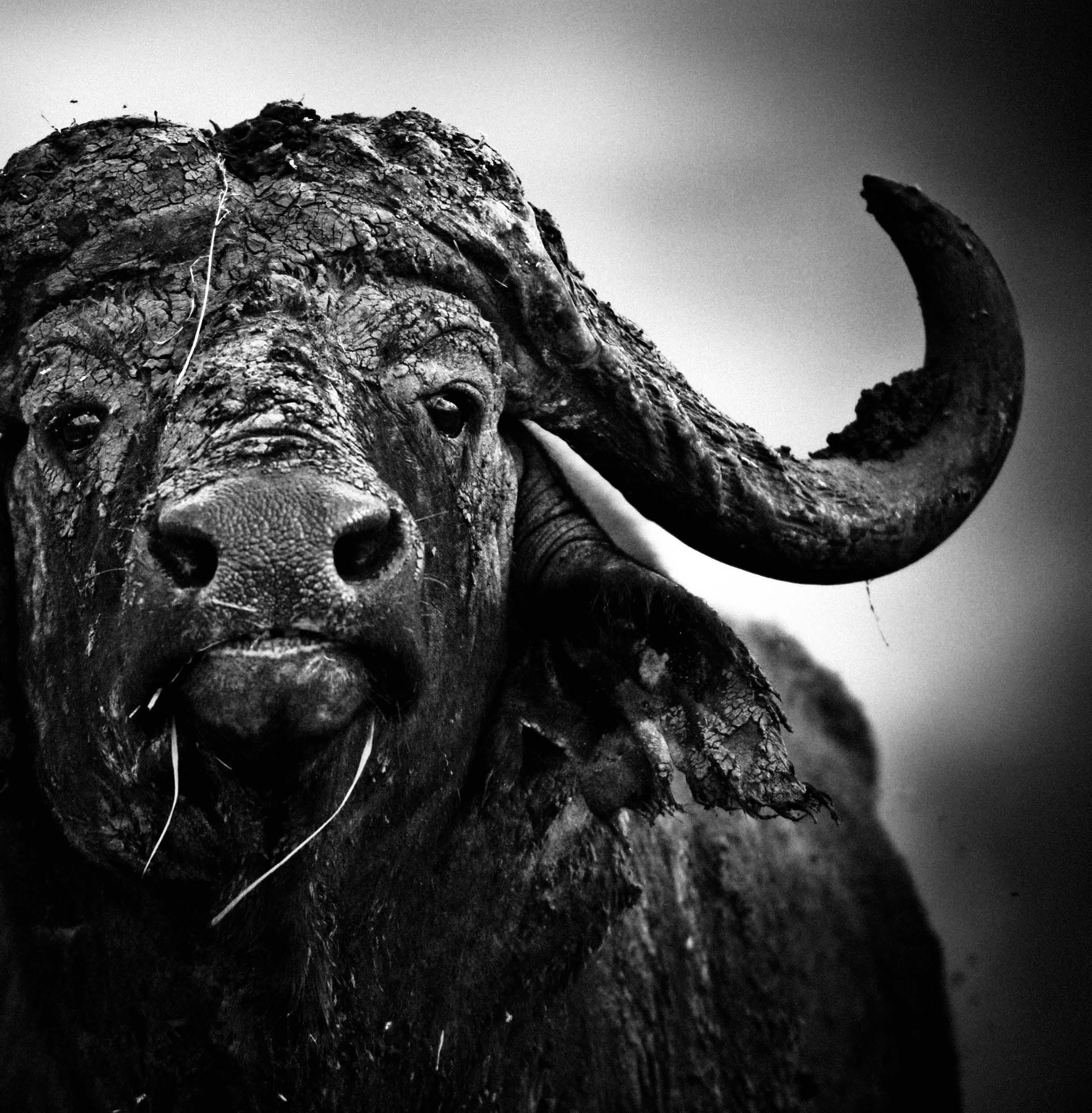
6 minute read
Tweaking your Soul
There are artists who have defined an age, a medium or a period of time. There are images, whether in paint, clay or photography, that are immediately identifiable as the work of one of these talented individuals, and it’s just this immediate recognition that sends a thrill through the viewer and fosters the emotional connection to the image, that tweaks our soul. A man who tweaks our soul to an almost
infinite degree is the exceptional Laurent Baheux. This talented French photographer, shooting almost exclusively in black and white, captures the emotion and attitude behind the wildlife of Africa. There is an almost daguerreotype feel to some of his portraits, reminiscent of the 19th century portrait photographers, and it is in this personification of these magnificent animals that we feel their pride, their spirit and – most importantly of all – our responsibility for them.
Advertisement
Between continents, Laurent managed to answer a few questions for United Maverick.

You began in sport photography for a number of years, only making the transition to African wildlife later. You had great success in your field, so why did you make the change at all?
I have worked in photography since 1994, beginning with press and then moving on to sports agencies. I followed international competitions and tournaments like the Olympic Games and covered various sports like soccer, rugby and tennis. It was a great experience and very formative because you have to be attentive, reactive, and constantly available. But at the same time, I dreamed about the African continent. Its quiet and authenticity. That’s what drew me to Tanzania in 2002. It was a tremendous shock for me, completely disrupting my life and changing not only me, but my approach to my photography. Finally, I was able to shoot with my instincts, my feelings and with my vision for photography and nature and not only for editorial requests. It was liberating.
Do you think you missed anything, by not getting a “formal” photography education?
That’s a great question. I often receive messages from young photographers asking for advice on how to become a professional. It’s really difficult to answer because my path was in no way classical. In fact I feel almost lucky that I didn’t get a formal photography education. It allows me to shoot with no prejudice, and no preconceptions. You try, you test and you build your own vision. For me, techniques and tools are secondary.
You shoot in untamed environments, have you ever been in a position of danger while shooting?
Well, at the beginning that happened all the time, due to lack of experience. You have to understand that you are entering an animal’s territory. This is their place, their kingdom and you are there by their grace. Now I feel less threatened with them than I do with “civilised” people.
What’s your opinion of Instagram and other social media environments; do they help or hinder photography as an art?
The development of social media environments like Instagram is a great opportunity to reach a large number of people easily and directly. It’s amazing! At the same time, it is more difficult to establish yourself and hold your place in a world where new great things are being discovered all the time.
I don’t think we have enough history yet to judge whether these environments help or hinder photography as an art. Nevertheless, I think that art, like many other sectors, is impacted by internet and social networks. For example, in March 2015 Leonardo DiCaprio (who is an avid art collector) spotted his next great acquisition on Instagram.



Is there anything specific you haven’t yet had an opportunity to shoot that you would like to?
Nature is my principal source of inspiration. In order to show its power from another angle, I have started taking landscape pictures in the United States recently. Taking photographs of magnificent natural landscapes fulfils another dream of mine.
Your shots deliberately highlight the animal’s human characteristics. This is clearly intentional, but why is this your focus?
Each animal has his or her own personality, their own character. It is not necessarily a question of species. I love to focus my work on what the animals are feeling: happiness, sadness, tenderness, anger. I want people to understand that animals – and more generally nature, plants included – are sensitive and precious.
You obviously travel extensively in Africa, which country did you find the most interesting?
I don’t like to choose a favourite; animals – after all – know no borders. That said, Tanzania is still my favourite location. There are beautiful landscapes and broad plains. I can always get great compositions for wildlife pictures there.
What has been the worst travel experience you’ve had in Africa?
The worst part about travelling so extensively is when I see the wild African territories that fall each year…
And the best?
My best travel experience in Africa was my first trip in 2002. To Tanzania. Looking at these enormous mammals in the wild, the scenes were so much more magical than I had ever imagined. It was the beginning of a life that would be forever changed.

Do you have a favourite shot?
Actually, one of my favourites is a shot of a lion in the grass. I was only 30 metres away from the lion and I had been waiting for that moment the entire day. The breeze, the light and the grass were all perfect!
There are so many photographers out there trying to make their mark and get recognised. What is the best advice you can give a newcomer?
Oh, definitely self-confidence.
What was the best advice you ever received?
It is important to believe in ourselves, as we are all capable of reaching our wildest dreams.
In your opinion, what should our governments be doing to protect and nurture the wildlife that you photograph? What do you think would be the best use of their resources?
Economic incentives for environmental protection are needed in developing countries so as to preserve the wildlife territories. In Africa, people and the animals are competing for land, especially in East Africa where human population is on the rise and more land is required for agriculture and livestock. Ecotourism helps and it doesn’t necessarily cause damage to the environment, but it can be a nuisance at times. Inevitably it’s a doubleedged sword.
You have won so many prestigious awards, are there any in particular that have special meaning for you?
Awards are a good way to show your work as well as promote it. The first one that was special to me was Wildlife Photographer of the Year in 2007 which I won for a picture of a lion’s tail. It was in the category “Creative Vision of Nature”. This is exactly what I think I am: a nature creative not a naturalist.
Laurent Baheux is the author of The Family Album of Wild Africa.










